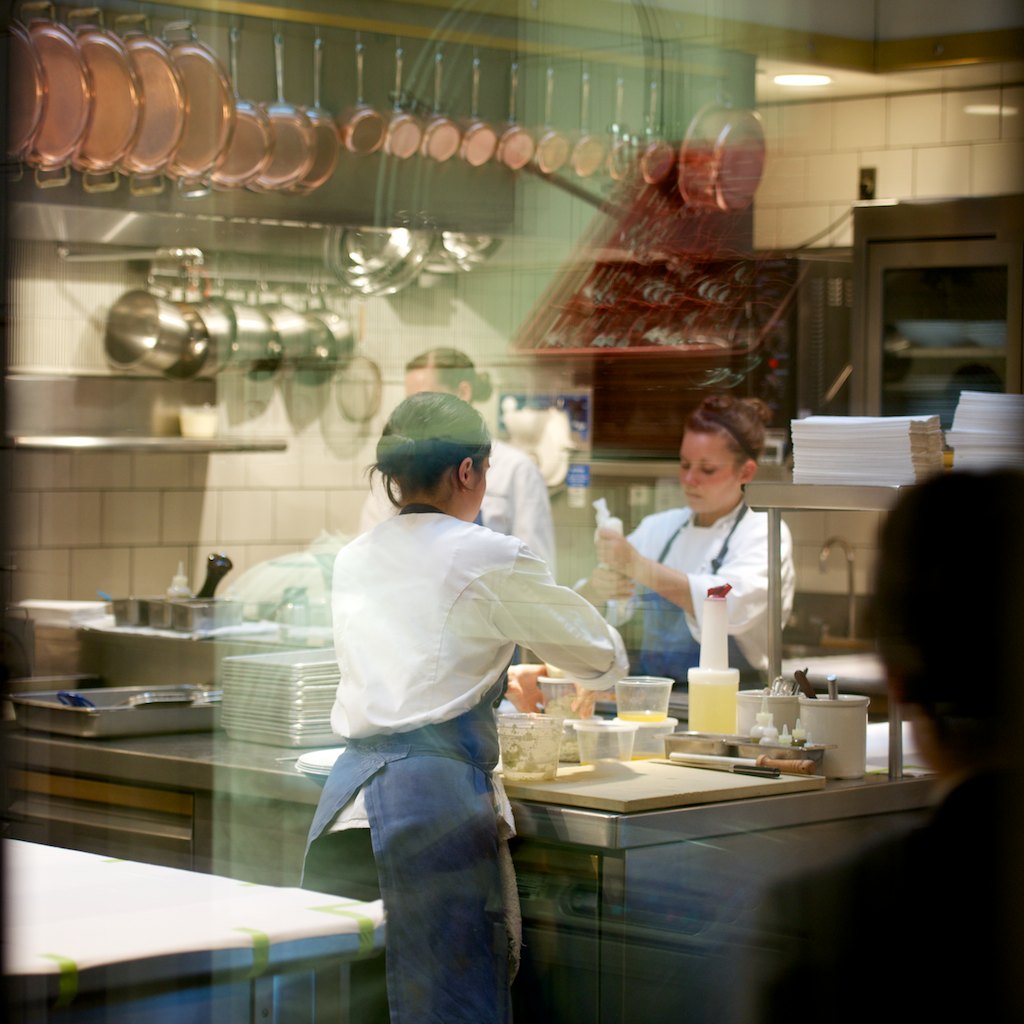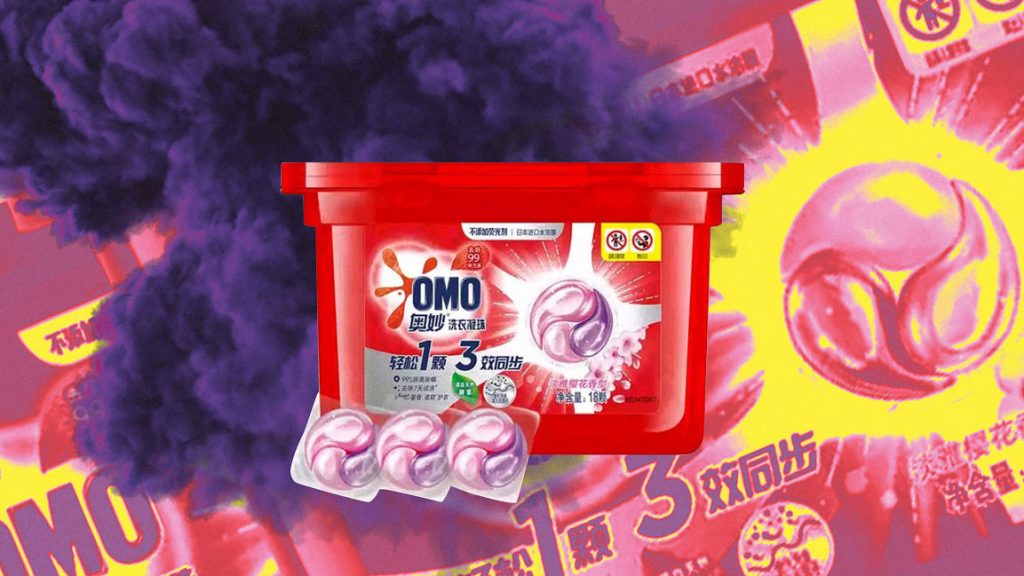Interview: Nice Laundry and Outerspace Co-Founder Ricky Choi
From launching an exciting sock and underwear brand to developing the only logistics provider with an engaging brand identity

Since its inception almost a decade ago, apparel and accessories brand Nice Laundry has garnered a devout following for its charming styles, easy customization options and quick delivery. Co-founded by Ricky Choi, and predicated on premium socks and underwear with personality, Nice Laundry has grown into a beloved direct-to-consumer market disruptor. Part of the brand’s success is due to eccentric takes on classic designs and a general exuberance in an otherwise quiet category—and part is due to Outerspace, a human-centric and tech-forward logistics company that Choi also co-founded and runs as CEO. There would be no Outerspace without Nice Laundry, and Nice Laundry functions so well thanks to Outerspace. Moreover, Outerspace’s 200,000-square-foot warehousing campus in northern New Jersey welcomes other brands too.

“Nice Laundry was founded in 2013. By 2015, we had bounced around to three different warehouses,” Choi tells COOL HUNTING. “The reason we kept changing was that we knew nothing about warehousing and all the details that go into it, but places always seemed so rigid. It was always, ‘No, you can’t do this’ or ‘No, you can’t do that.’ It was always ‘No, no, no.’ So we went to great lengths because of the old-fashioned approach to those warehouses.”
To create the most seamless experience for Nice Laundry customers, Choi took warehousing logistics in-house. “At first, our investors and advisors hated that idea,” he says. “We fundamentally think that so much of the direct-to-consumer experience hinges on the warehouse. It’s the last touch point. You spend all this money on marketing, branding and product—and then the ball gets dropped at the last step. Everything goes to waste. It’s an area of the supply chain that we knew we could innovate.”
With no experience in warehousing, Choi had the opportunity to build everything from scratch from a brand perspective. “We pulled in our brand leaders and our customer service team and asked them what they thought we needed to do,” he says. “Everyone contributed ideas: from an in-house studio for photography to personalization capabilities.” They kept layering in more and more business attributes, including office space, that could work to their benefit.
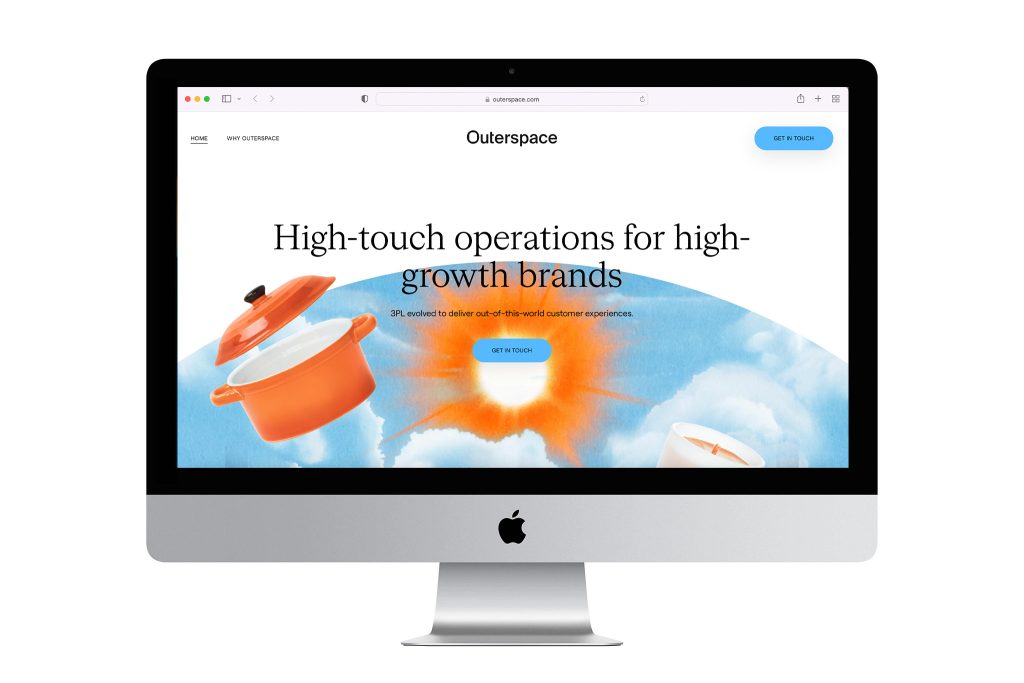
In an unprecedented move in the warehousing industry, they brought in Red Antler as a design partner. “Red Antler did this analysis of every other warehouse website and everyone uses the same color and everyone uses a photo of a box and everyone has this blurry image of a forklift inside a warehouse,” Choi says. “So much of a founder’s anxiety over a warehouse is wondering whether or not they will understand a brand or whether or not they will abuse the customer experience.”
Even the Outerspace name is a play on the industry standard: a lot of warehouses are named after their location or directly mention the town they’re established in. “The old model was all about geography,” Choi says. “We decided to call ourselves Outerspace because we are working with these progressive brands that don’t think so much about geography as much as execution and services.”
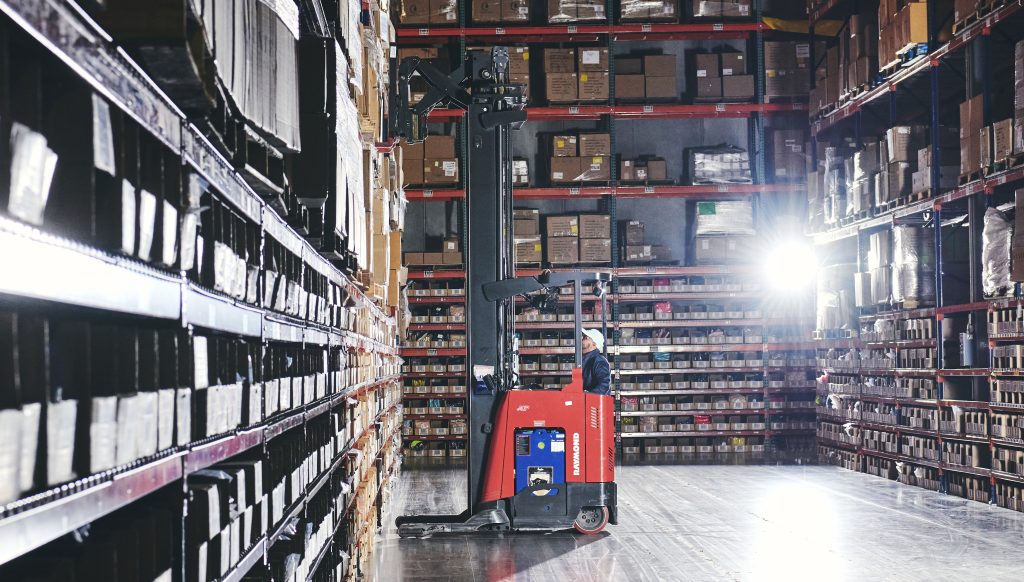
It was a game-changer in a time of tremendous chaos. “Consumer awareness about warehousing is at an all-time high,” Choi adds. “Everyone that has ordered something in the past two-plus years has experienced some sort of product delay, processing delay or shipping delay. We have a really cool opportunity to redefine what has been baked into the zeitgeist of the consumer mindset.”
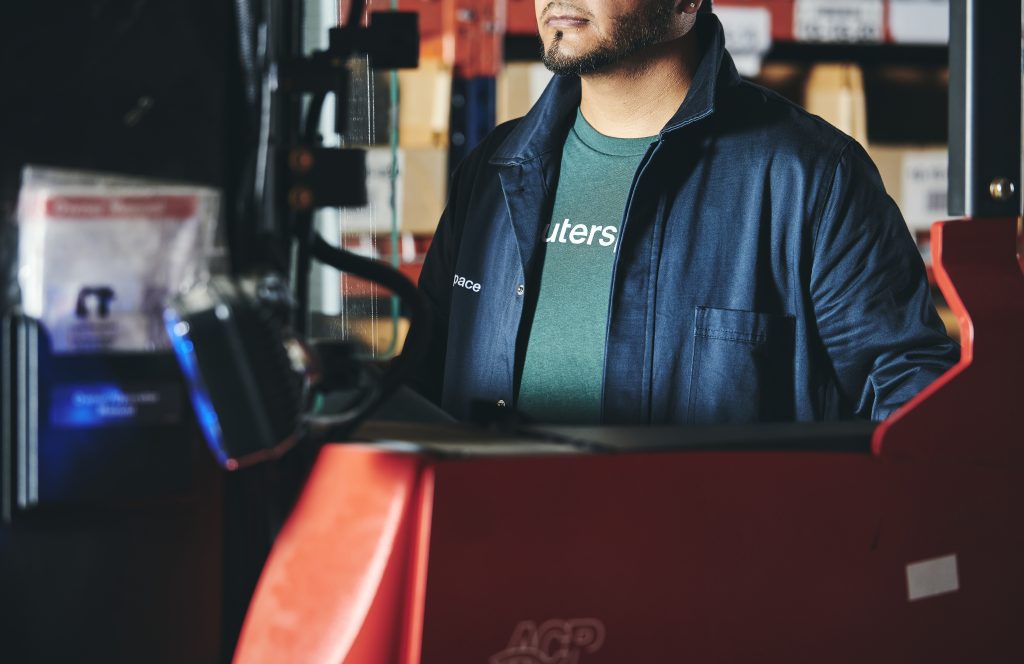
Once Outerspace became operational, Choi started getting calls from other NYC-based brand founders. “They asked how the hell we were doing what we were doing. For two years, other people tried to get into our space, but we had built it for ourselves,” he says. “Eventually, we said, ‘Let’s see if we can drive these same inflection points for brands that we like and for founders we like.’ Things went swimmingly, so we decided to do it all on a bigger scale.” Selectively choosing clients—high-growth brands in top consumer categories—they were able to develop their large-scale infrastructure.
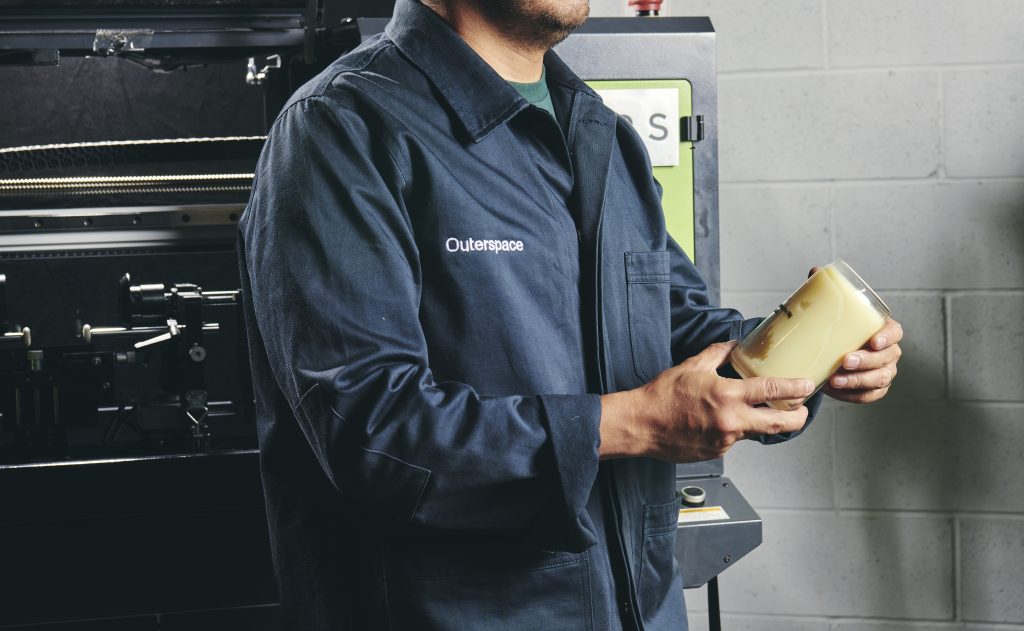
“A lot of warehouses tend to work with hundreds of brands. Outerspace is selective,” Choi says, noting that fewer than one in 13 brands get in. “In the process, we’ve built this really interesting community of founders. These are brands that have a product that makes sense and that we believe should exist; brands that have a unique point of view and differentiated offerings.” Together, there is a shared audience and an information ecosystem, where brands are learning from each other.

Choi wants to grow Outerspace into what he refers to as a “utopian space that redefines how a warehouse could work with a brand.” This includes providing custom-built tech stacks for each client, and translates to advancements in order fulfillment and more.
“We’ve seen a lot of our brands ship to drop-based models,” Choi adds. “In a world where advertising is growing more expensive, they’re creating their own kind of retail events online. Those strategies have helped. Our brands are up over 100% from the previous year.”
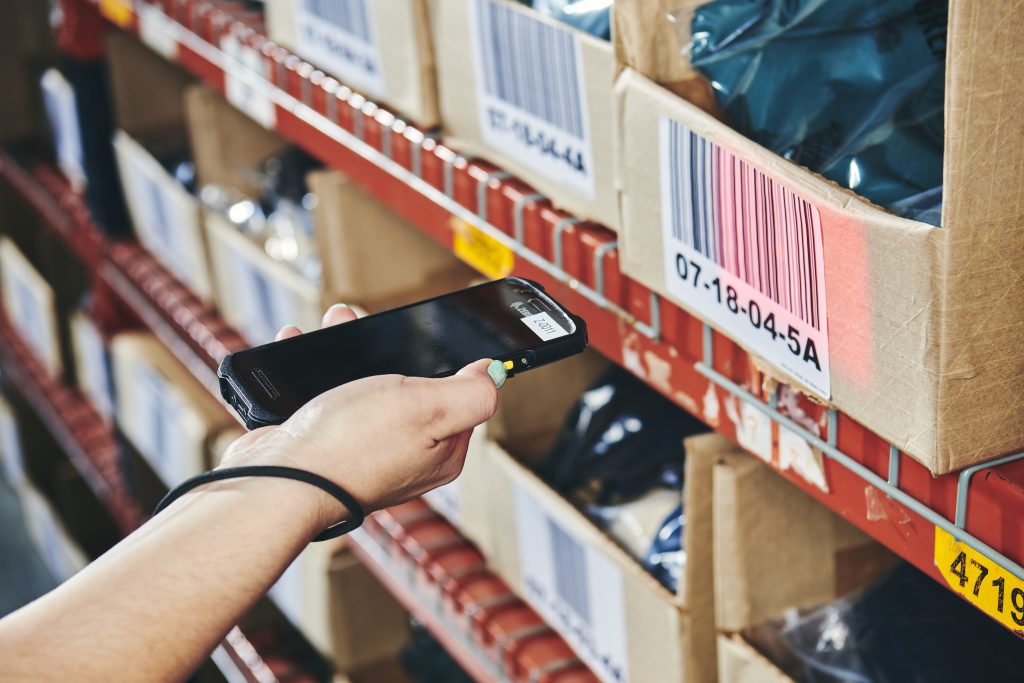
Just as important as the cutting-edge technology is the human component. Outerspace assigns client brands with a dedicated operations manager—one that knows the ins and outs of the brand. This removes the warehouse bottleneck caused by lack of strategic talent. “This is a person who understands Shopify and Google Analytics. They have the knowledge base to run the brand’s floor team,” Choi says. It’s more meaningful this way and makes communication simpler.

Choi has found a dream to achieve in the warehousing space. “We have stumbled upon something that is incredibly resonant with brand founders. Being in warehousing and logistics, we will look back in 10 years and it will have been like being in Silicon Valley in the late ’80s, early ’90s. We are going to keep doing more and more. We want to make it very easy to grow and we want to make it so that founders only need three partners: tech, operations and manufacturing.” With a defined brand design—and merchandising to be released down the line—they’re an easy partner to connect with.
Images courtesy of Outerspace

